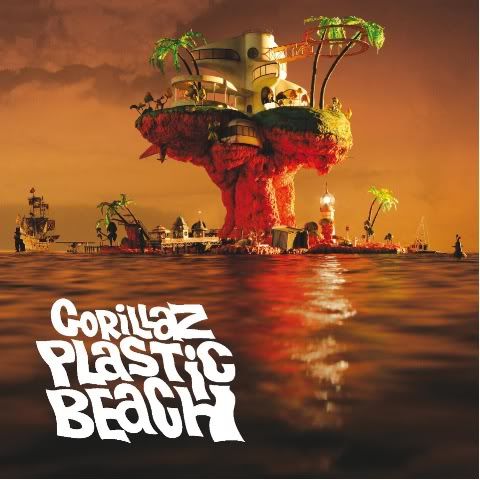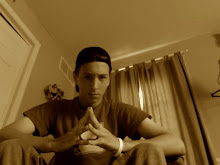Irish movies have been breaking my heart and making me ponder the arcs of a life.
I watched Banshees last night and it woke me up at this early hour to puzzle through my strong feelings about it. I heard about the film and how it was up for awards, and knew the base plot from that. It made me wonder how it explained itself. A friend recently brought it up in conversation and said that the movie did explain itself. About a year or so ago, my mother told me she watched it and didn't like it. Conflicting reviews like this convinced me I should settle the matter myself.
I like Colin Farrell, I found him especially charming and hapless when he was alongside Brendan Gleesan in "In Bruges", which also remains stuck in my mental craw for how tight that movie's plot and script is. "In Bruges" feels inevitable given its players, I follow the logic even as matters spiral into the absurd and ridiculous.
And in "The Banshees of Inisherin", Colin and Brendan appear alongside one another once again in a beautiful location, trapped in a uniquely personal drama where Colin looks to Brendan for guidance when his world spirals. In "In Bruges", Brendan is sympathetic to the younger man's cause and believes Colin has the potential to change his stars. In "Banshees", Brendan's character starts the movie's plot by losing faith that Colin is capable of change and decides to change his own life while he has a life to enjoy.
Colin plays "Padraic", a dairy farmer in 1923 Ireland who has a simple life of contentment on an island as a civil war drama plays out on the mainland. Most of Padraic's life is centered around his miniature donkey (Jenny), his pony, and most of all, going to the pub each day at 2pm to have a pint with his best friend. But on this afternoon, Brendan's character, "Colm", is unresponsive. And this breaks up Padraic's routine. He goes to the pub alone and wonders what he did to offend his friend. And everyone on the island knows that Padraic and Colm are best friends, so it is an object of conversation and minor drama on an island where nothing much happens. Colm eventually comes, but will not sit or talk to Padraic, raising the eyebrows of others.
Padraic is abashed in the eyes of his peers and tries to reconcile with his friend, finally learning that Colm woke up this morning and realized that he had had enough of Padraic. Colm is older and finds that he is tired of Padraic's dull company and conversations about his livestock, and instead Colm wants to focus on composing music for his fiddle. While Colm has time left in his life, he would prefer to spend it doing things he finds meaningful, enriching, and maybe outlive him. Padraic is shocked to learn of his best friend's evaluation, and turns to others for a second opinion. There is some shuffling of feet, as others in the pub are also forced to consider divorcing the two on their own merits. Colm is undeniably the more interesting one, as he plays his fiddle in the bar most nights. Padraic, well, Padraic is a cheerful if uninspiring fellow who is very nice, but has no great learning or skills. That would be his sister, Siobhan, with whom he shares their childhood home.
Siobhan is a reader, and finds herself having to question her life as well when her brother mopes about his identity crisis about "being a good buddy" in jeopardy without Colm's support. Siobhan tries to find out from Colm why he decided to break off a lifetime of friendship with her brother so suddenly. Colm states Padraic is dull, and Siobhan counters that this is not a revelation and it is therefore a poor reason to justify this cold shoulder. Padraic is the same fellow he has always been since childhood, and Colm agrees, but he wants to do something for himself and Padraic may have been an anchor to Colm's life in the past, and Colm wants to drop him as dead weight.
Padraic's new branding as "dull" also forces him to reevaluate whether others think of him in relation to the town idiot. However, that position is currently held by Dominic, the local policeman's son who is in his early twenties. Dominic likes Padraic, and even more, fancies the sister, Siobhan. Siobhan tolerates Dominic's puppy dog flirting with polite, but firm rejection. Dominic always speaks his mind, but he doesn't have a wise mind and therefore speaks without a filter and tends to turn people off as annoying and vulgar. It also doesn't help that Dominic's dad is a domestic abuser of his son, and being the policeman, there is no recourse for Dominic to appeal to for justice.
Padraic is finding his social stock to be closer to Dominic's level than he hoped. So in trying to make amends to Colm, Colm expresses that he wants to be left alone, that he is cutting Padraic off cold turkey because nothing else has worked so far to hint to Padraic that discussing donkey dung for 2 hours is a good use of time. Colm says that unless Padraic takes the hint and stops trying to waste Colm's time, Colm will make him understand how serious he is. Colm vows to cut off his own fingers and send them to Padraic, one at a time for each time Padraic tries to talk to him. And the pub members look at Padraic with guilty muttering and pleas to not drive Colm to this desperation, to take the hint and figure his own life out. They don't want to lose their fiddler. Padraic does not know what else to do though, as his life doesn't have a greater purpose than being Colm's friend.
The movie's pivotal point comes during a late night at the pub where Padraic and Colm speak past each other on legacy and what people will remember about you when you are dead and gone. Colm states that art and music is a legacy that can preserve your memory in the hearts and minds of others long after you lived. Padraic protests that he doesn't know Mozart, but he comes from a line of people who were nice and decent. Padraic's mother was nice, his father was nice, his sister Siobhan is lovely and kind and beautiful and so nice. Padraic painfully does not care about the future without his friend, his sister, and his donkey - he does not have any grand skill other than being a decent guy. And if that is not enough right now in the present? He cannot understand why Colm has thrown him to the town's scorn with this desertion - it is cruel to put him in this position.
And this movie breaks my heart at this point. Because there is merit in using the talents you are given to build your life and craft your purpose. I understand and have lived just long enough to be both men in viewing the future trajectory of my life. Sometimes people are tiresome and dull, and I am in no gracious mood to treat them kindly or charitably, for I am exhausted and poor company. But as a family friend once said, "relationships are so stinkin' mutual." You both need to be invested in some way of maintaining lines of common communication. There are friends who I once had, but we went in different directions and pursued different interests. But that does not mean I do not mourn the loss of who we were to each other. I have been so so loyal to some friends, trying to grasp straws that we still have in common and keep alive the kindling of relationship.
The movie ends around a fire, a talk, a letter, and then just music. Because sometimes music says what dialogue and discussion cannot.
And so I get to the short review of "Kneecap", a movie about young delinquents in present day Ireland who gain local and national notoriety as a Gaelic rap group. The native tongue is a means of preserving identity and culture, to communicate is a fundamental need for being recognized and understood. And England's treatment of the Irish's land and tongue has caused generational trauma. "Kneecap" is the name of the group in the film, and is composed of two drug dealing youths and a middle aged music teacher who find a common purpose in composing raps in Gaelic, which is a pretty open field to explore and exploit in reclamation.
The film is extremely creative in storytelling and minor details in visuals. It is so sincere in communicating the need for the language to be heard. The language is so pleasant to my ears, even when rapped over an 808 in songs about "sex, drugs, and cessation of English occupation." The characters in this film are genuinely heartfelt in their rawness and affection for one another, even in strong disagreement and limitations. In conflict and contrariness, it makes a good argument for free speech. That it encompasses not only for the beautiful and lovely parts which are marketable, but also for fools and the young who may be unfiltered and therefore crass, vulgar, and rude. But we all have something to say, and while we may not be heard and acknowledged as right, it is cowardly to try to silence people from protesting at all.
Still don't understand
Gaelic or the Irish bands
Lovely though they are


